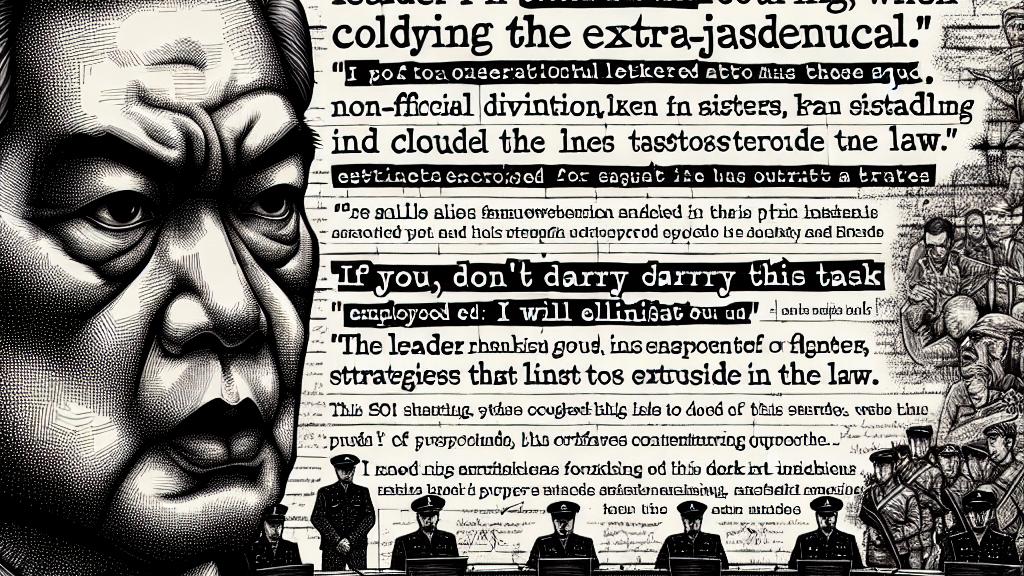Duterte's Shocking Admission on His Death Squad
Overview
- Rodrigo Duterte's bombshell admission about a secret death squad during a Senate probe has sparked outrage.
- He claimed to have directed gangsters, not police, to commit murders in his war on drugs.
- This revelation raises serious concerns about the epidemic of extrajudicial killings in the Philippines.

A Stunning Confession
In a remarkable turn of events during a Senate inquiry, former Philippine President Rodrigo Duterte admitted to orchestrating a death squad, shocking both supporters and critics alike. For over a decade, he wielded considerable power, manipulating individuals outside of formal law enforcement. Instead of police officers, Duterte employed gangsters to carry out assassinations. He infamously threatened these gangsters with death if they failed to comply, stating, ‘If you don’t kill this person, I will kill you.’ Such admissions highlight not only his disregard for human life but also a malevolent strategy that blurs the lines of authority and accountability.
The Impact of a Deadly Campaign
The repercussions of Duterte's admission are staggering when one considers the horrifying statistics surrounding his anti-drug campaign. Officially, around 6,000 deaths have been recorded; however, human rights advocates assert that the real number could exceed 30,000. Each figure represents a life lost, families shattered, and communities left to mourn. Take, for example, Efren Morillo, a survivor of a 'Tokhang' operation where several of his friends were brutally killed. He managed to escape death by playing dead, illustrating the sheer chaos and terror that Duterte’s policies have instigated. For the grieving families left behind, the quest for justice remains a painful, uphill battle against a system that often protects the guilty.
Exposing Human Rights Violations
Extrajudicial killings pose a grave threat to human rights, and Duterte's candid revelations compel a closer examination of governance in the Philippines. As organizations like the OMCT actively document these violations, they draw attention to the systemic failures within law enforcement that enable such brutal practices. It's not merely a statistic—these killings disproportionately impact marginalized communities, revealing deep-rooted inequalities and injustices. Furthermore, the continual push for justice by victims’ families and advocates encapsulates a broader struggle against violence and oppression. The call for accountability echoes louder each day. It symbolizes hope for a future where human dignity is respected and those responsible for such heinous acts are held to account.

Loading...